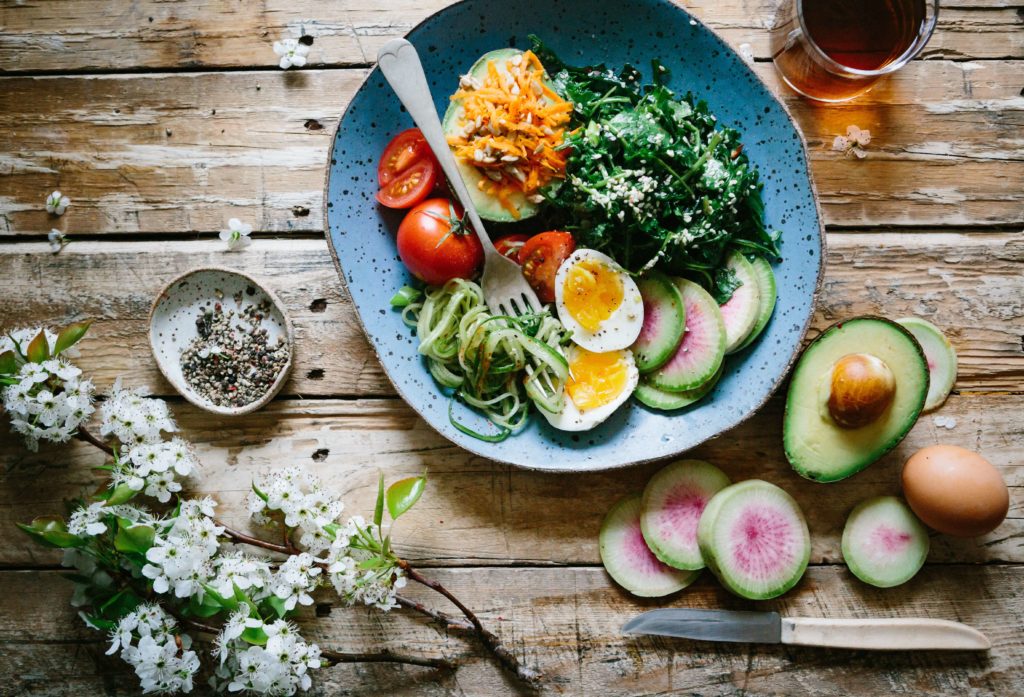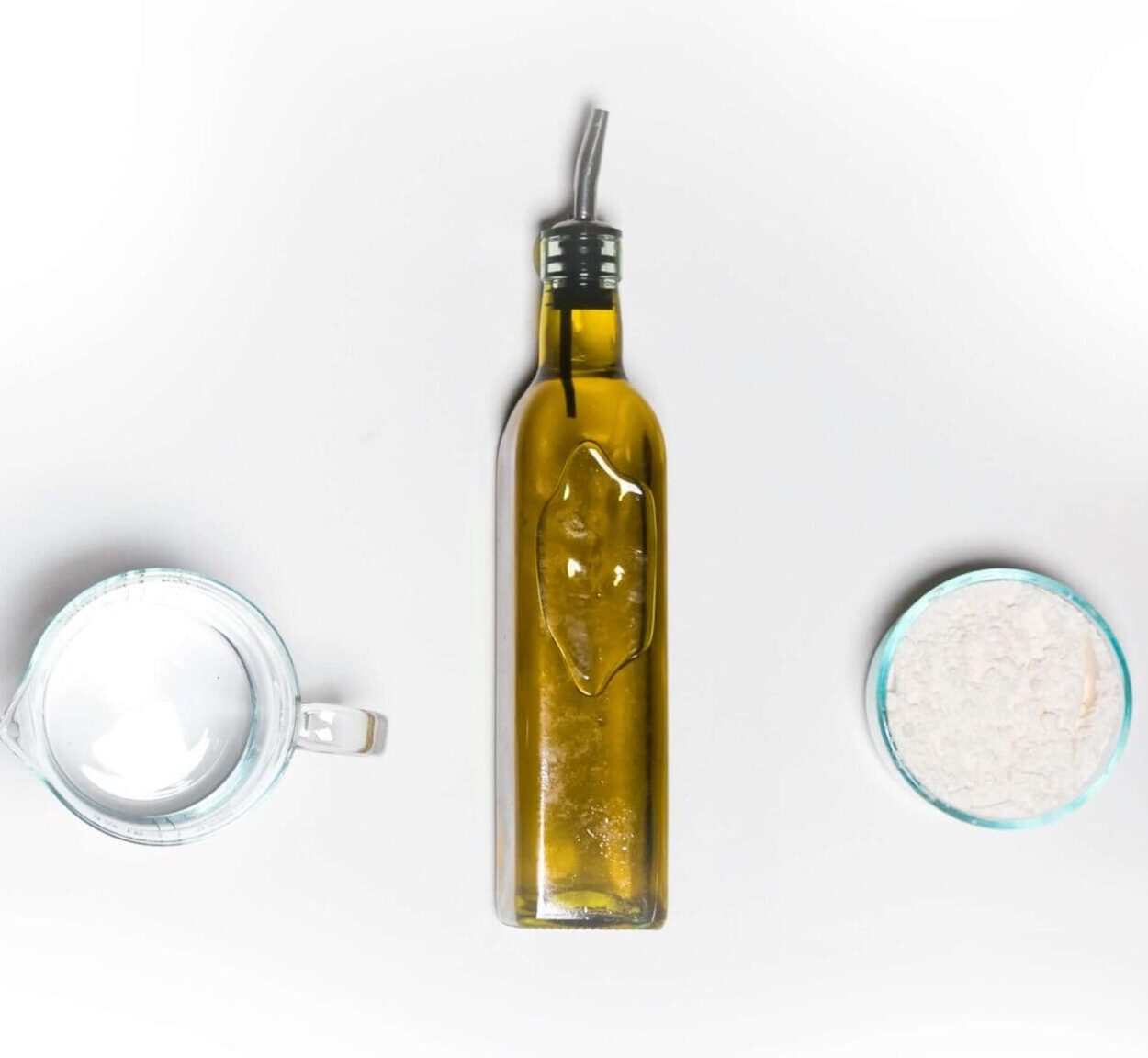
Hello friends!
Today I want to talk about one of the more distressing side effects of cancer treatment: hair loss. This side effect is pretty common. In fact, approximately 65% of patients receiving cytotoxic cancer treatments will develop alopecia (hair loss) within days to weeks of starting treatment.
Why You Lose Hair
Chemotherapy targets cells that multiply quickly, which is great to combat cancer, but not so great for your healthy cells that also grow quickly, such as the cells that are found in the lining of your mouth, stomach, and hair. These cells may be extra sensitive to cancer treatments and may be linked with common side effects such as taste changes, nausea, and hair loss.
Unfortunately, there are no clear guidelines about what can prevent or treat hair loss from cancer treatments. There is also really no way of knowing how your hair will respond to treatments. Degree of hair loss can range from light thinning of the hair to total hair loss including body hair, eyebrows, and eyelashes. Some people embrace this change as a sign of their cancer journey and as a result may rock wigs or their bald head. For others, however, this change can be extremely difficult, and can cause feelings of insecurity on top of all the other crappy stuff survivors have to deal with.
Fortunately, these side effects are often temporary, and after 3-6 months of finishing treatment, hair may start to grow back. It may not be the same hair; it may have a slightly different texture, color, or curl. The hair is oftentimes more fragile, and it may take some time for it to return back to its baseline.
Hair Growth Supplements
I know it can seem tempting to reach for those “hair-growth” supplements, especially when you see it advertised everywhere, but studies suggest that unless there is a deficiency, supplementing with these nutrients is unlikely to have much of an impact on hair health.
Nutrients to Support Healthy Hair

Calories
Severe calorie restriction can result in hair loss. This could potentially be a result of the low calorie intake, micronutrient deficiencies, and stress which can all contribute to hair loss. Those crash and yo-yo diets are not doing any favors for your hair goals.
Protein
Hair is made almost entirely of protein. Studies show that protein deficiency may decrease hair growth. Now, we get protein from many of our food groups. Animal proteins such as meat, fish, milk, dairy, and eggs provide high bioavailable protein. Plant proteins in grains, some starchy vegetables, beans/legumes, nuts/seeds are less bioavailable, but it is still possible to consume enough protein. If you struggle to meet your protein requirements, adding a protein shake might help.
Omega 3 Fatty Acids
Alpha-linolenic acid (ALA), docosahexaenoic acid (DHA), and eicosapentaenoic acid (EPA) are all forms of omega-3 fatty acids. These fats are essential; in other words, we have to get them from our food! Along with reducing inflammation, they also help maintain healthy nails, skin, and hair! ALA fatty acids, found in plants, are not as bioavailable as the DHA and EPA, but all three can be instrumental in meeting your omega-3 dietary requirements. Some studies have associated omega-3 intake with thicker hair and an increase in the number of hair follicles in the growth phase. The evidence is limited however to animal or small sample size human studies and not sufficient to recommend supplementation. Get these fats from the diet by consuming sources such as salmon, tuna, mackerel and cod for the DHA and EPA form; consume flaxseeds, chia seeds, and walnuts for the ALA form of omega-3s.
B Vitamins
The B vitamins include 8 water soluble vitamins which you may have heard of before: thiamin, riboflavin, niacin, pantothenic acid, pyridoxine, biotin, folate, and cobalamin. You may be more familiar with the shorter names: Vitamin B1, B2, B3, B5, B6, B7, B9, and B12. These vitamins are very abundant in a balanced healthy diet; however, for those with a limited intake or other disorder, a deficiency could be present. The nutrients biotin, vitamin B12, riboflavin, and folate have specifically been researched for their relationship to hair loss, especially in the case of a deficiency.
Biotin
Biotin plays a role in producing the protein keratin which makes up hair, skin, and nails. This is why a deficiency in this nutrient could result in hair loss. Some foods contain biotin, such as beef, liver, eggs, salmon, pork, sunflower seeds, sweet potatoes, and almonds.
Fun fact: some of the bacteria in our guts MAKE biotin that we can absorb and use in our bodies! If someone is on antibiotics for a long time or if they have an autoimmune gastrointestinal disease, they may have lower levels of biotin.
Currently, it is not recommended to take daily biotin supplements for skin/hair/nails unless there is a deficiency. Additionally, many supplements far exceed the recommended daily amount of biotin, so focus on getting the food sources first!
Vitamin B12
This nutrient plays a role in DNA synthesis, red blood cell formation, and creation of proteins. Poor formation of blood cells can negatively impact hair growth. We can get enough vitamin B12 from animal proteins like meat, fish, chicken, milk, eggs, and cheese. Examples of plant sources of B12, for those following a vegan diet, include fortified breakfast cereals and nutritional yeast!
Riboflavin
Riboflavin is involved in blood circulation, repairing tissues, and acting as a part of a coenzyme used to create energy that hair follicles may use to grow. Not getting enough riboflavin can result in dry, cracked lips and hair loss. Get your riboflavin from milk, yogurt, cheese, beef, pork, chicken, salmon, fortified grains, nutritional yeast, almonds, spinach, and mushrooms.
Fun fact: light can destroy riboflavin, which is why if you buy cow’s milk, you get it in those opaque containers rather than glass bottles!
Folate
Since folate plays a role in creating amino acids, deficiencies may cause changes to the hair, skin, and nails. You can get your daily folate requirement by consuming dark leafy greens, beans, peanuts, fresh fruit and fruit juices, whole grains, liver, seafood, eggs, and fortified foods such as cereals!
Vitamin E
This antioxidant helps decrease environmental damage to the hair by neutralizing harmful free radicals. Sources include sunflower seeds, almonds, spinach, and avocados!
Vitamin A
Vitamin A is essential for vision, immunity, and healthy cell growth. It also plays a role in balanced production of sebum, which can keep hair healthy. Sources include sweet potatoes, carrots, pumpkins, spinach, milk, eggs, and yogurt. Focus on food since excessive amounts from supplements can be toxic and can actually cause hair loss. No, thank you!
Vitamin C
We need vitamin C in order to create a protein known as collagen, a vital part of the structure of your hair. Vitamin C also helps your body absorb iron. This can be especially useful for those with an iron deficiency or for those following a plant-based diet. Our bodies cannot make vitamin C, so we need to get it from foods like bell peppers, guavas, citrus fruits, potatoes, and cabbage.
Vitamin D
Vitamin D deficiency has been linked with hair loss both on the body and scalp. Although the relationship between the two is not completely understood, it can be a good idea to make sure you are getting enough vitamin D. Sources include fatty fish, eggs, fortified milk and orange juice, mushrooms, and sunlight! If you are getting your vitamin D from the sun, just make sure you are taking proper precautions to protect yourself from UV rays.
Iron
Worldwide, this is the most common nutrient deficiency. Iron plays a role in carrying oxygen to your cells, making it an important mineral for several bodily functions, including hair growth. It also may play a role in regulating genes in the human hair follicle. Iron deficiency, the most common cause of anemia, is a major cause of hair loss, especially in women. Some examples of sources include eggs, red meat, lentils, and raisins.
Zinc
Zinc plays an important role in hair tissue growth, and hair loss is oftentimes a sign of zinc deficiency. You can get zinc from food by choosing meat, fish, shellfish, legumes, seeds, nuts, dairy, eggs, and whole grains.
Closing
As you’re reading this, you are probably noticing that no one food has all the nutrients necessary for hair growth. Really, no one food has all the nutrients our bodies need in general. There are definitely some foods that contain several of these nutrients like eggs for instance which contain zinc, iron, vitamin D, vitamin A, folate, biotin, and protein. Whole foods are packed with a range of nutrients that our bodies need. Get a variety so you can get the different benefits that different foods have to offer!
Follow me on Instagram so you get all the SIMPLE facts about how to live after cancer!
Ready to crush the confusion when it comes to cancer and nutrition? Want the support of other survivors who are just as motivated as you are? Want access to yours truly for call and messaging to answer your burning questions about nutrition and cancer? Click here to sign up for my Small Group Cancer Prevention Nutrition & Lifestyle Program. This 8-week course will help you build long-term habits and help you regain your confidence in your food choices! Woohoo! I am so excited for you to join!
References
- Raman R. Best foods for hair growth: What to eat, drink & avoid. Healthline. https://www.healthline.com/nutrition/foods-for-hair-growth. Published May 18, 2022. Accessed March 1, 2023.
- Rossi A, Caro G, Fortuna MC, Pigliacelli F, D’Arino A, Carlesimo M. Prevention and treatment of chemotherapy-induced alopecia. Dermatol Pract Concept. 2020;10(3). doi:10.5826/dpc.1003a74
- Office of dietary supplements – omega-3 fatty acids. NIH Office of Dietary Supplements. https://ods.od.nih.gov/factsheets/Omega3FattyAcids-HealthProfessional/. Updated February 15, 2023. Accessed February 16, 2023.
- Guo EL, Katta R. Diet and hair loss: Effects of nutrient deficiency and supplement use. Dermatol Pract Concept. 2017;7(1):1-10. doi:10.5826/dpc.0701a01
- Almohanna HM, Ahmed AA, Tsatalis JP, Tosti A. The role of vitamins and minerals in hair loss: A Review. Dermatol Ther. 2018;9(1):51-70. doi:10.1007/s13555-018-0278-6
- Biotin – StatPearls – NCBI Bookshelf. https://www.ncbi.nlm.nih.gov/books/NBK554493/. Published July 4, 2022. Accessed February 15, 2023.
- Folate (folic acid) – vitamin B9. The Nutrition Source. https://www.hsph.harvard.edu/nutritionsource/folic-acid/. Published July 2, 2019. Accessed February 15, 2023.
This blog is not intended as medical nutrition therapy, medical advice, or diagnosis and should in no way replace consultation or recommendations from your medical professional.


